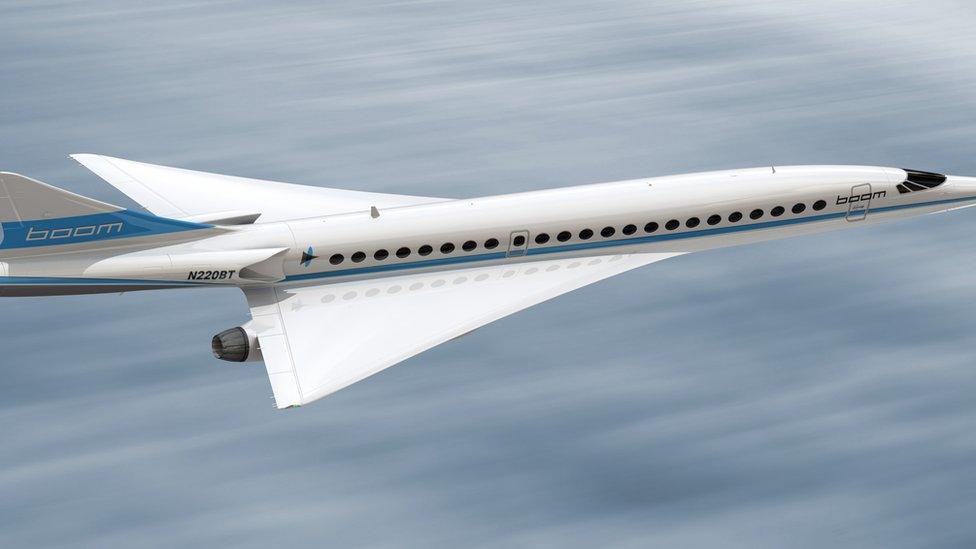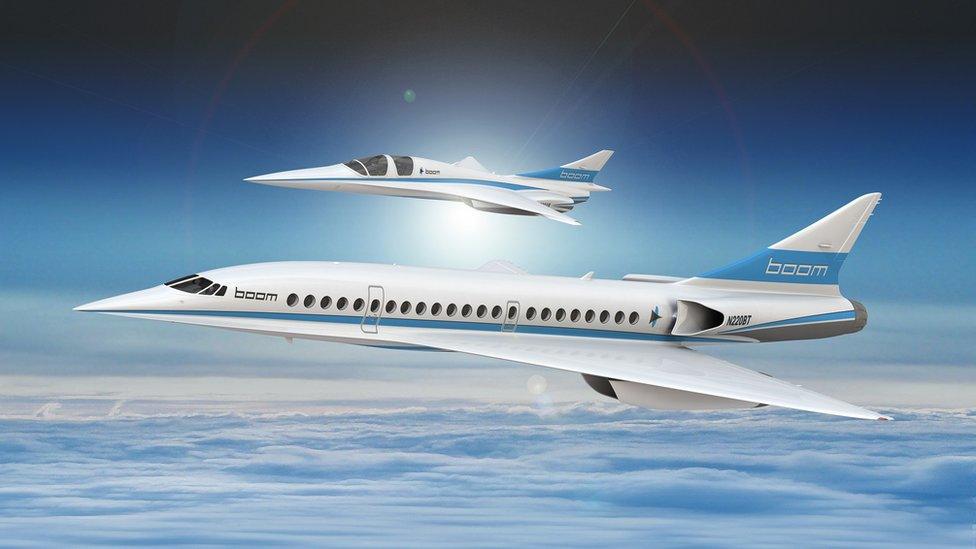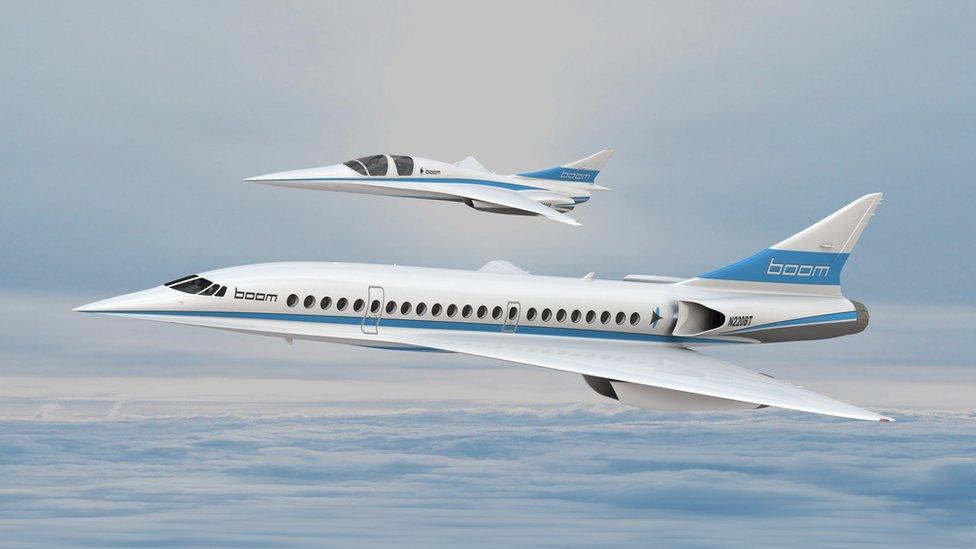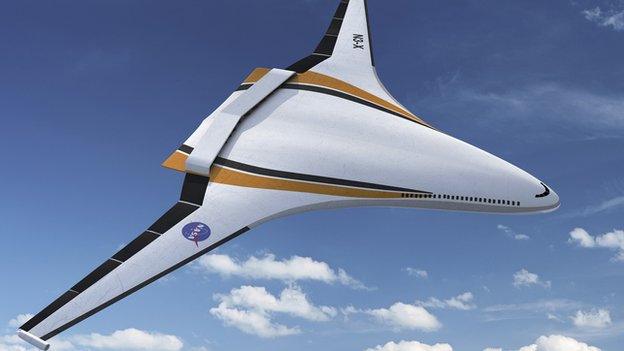'Quiet Concorde' aims to revive supersonic air travel
- Published

A drawing of the plane that Boom would like to build
Supersonic air travel could be back in little more than five years if a plane that aims to replace Concorde takes to the skies.
Boom Supersonic expects a prototype of its passenger plane to make its first test flight by the end of 2018.
Subsonic and supersonic tests will take place in the US.
If the full-size 55-seat plane is then approved, the first passengers could be travelling at supersonic speeds across the Atlantic by 2023.
Rolls-Royce warns against 'hard Brexit'
Boeing launches new version of 737 jet
Airbus unveils upgraded A380 jumbo
Blake Scholl, the founder and chief executive of Boom, said at the Paris air show that the design of the XB-1 demonstration plane had passed a performance and safety review ahead of manufacturing.
"Fifty years after Concorde, it's time to have a faster aeroplane," says Blake Scholl
Boom said five unnamed airlines had placed 76 orders for its passenger plane, which resembles Concorde but has a delta wing that sweeps almost to the tip of the nose.
It will also ditch the afterburner engine used by the British-French supersonic pioneer that was not only extremely loud but also very thirsty.
"By using a modern turbofan engine like Boeing and Airbus, you can make the aircraft both quieter and significantly more fuel efficient," Mr Scholl told the BBC.
The company claims that airlines flying its plane will be able to charge similar prices to a business class fare on the lucrative London-New York route of about $5,000 return.
Concorde tickets used to cost up to about three times that amount.

A picture of the plane that Boom wishes to build, with the proposed XB-1 demonstration plane in the background
Time-poor travellers, meanwhile, will jump at the chance of getting to or from those two cities in about half the time a subsonic plane takes, according to Boom.
"Airlines are excited for something new and different to offer their passengers," Mr Scholl said.
Although Concorde had the backing of both the British and French governments, he said it was not economic because the imperative then was to beat the Soviet Union into the supersonic age, rather than build a practical or affordable plane.
"Being a private company that has to raise investment means we have to have a business case that is profitable for airlines and affordable for customers," Mr Scholl said.
Although many remain sceptical that Boom can deliver its promises, the company said in March that it had raised the $33m that would allow it to build and fly the demonstration plane.
One believer in the project is Virgin founder Sir Richard Branson, who announced late last year that he planned to buy the first 10 passenger jets made by Boom.
His Virgin Galactic space travel venture will also provide manufacturing and engineering services, as well as flight test support.
- Published8 January 2017

- Published9 February 2015
